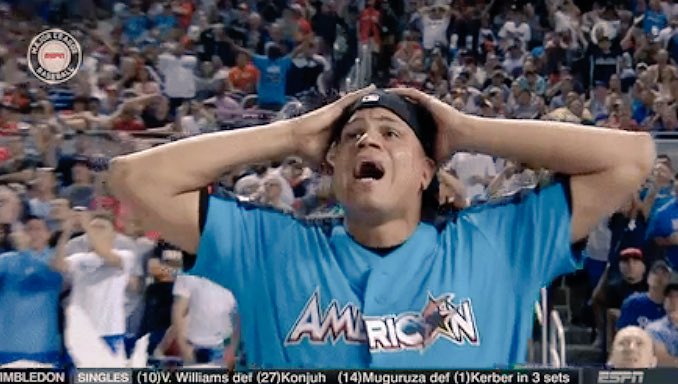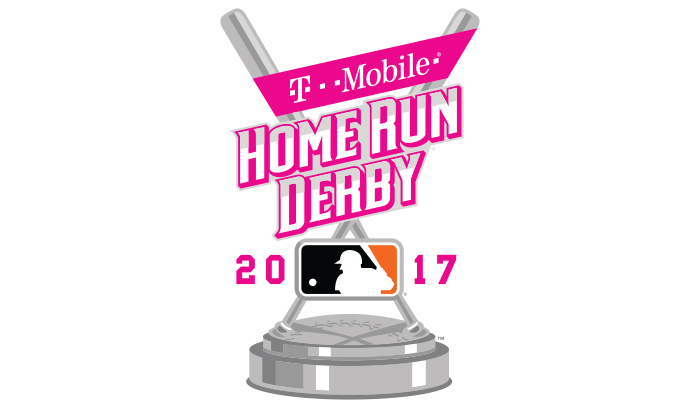Despite my many qualms with the event, I was guilted into watching last night’s Home Run Derby and reluctantly agreed for mostly for one reason: Aaron Judge.
I have to say, I enjoyed watching him participate, even if I still despise the general idea and fairness of the Derby itself–I’m looking at whoever booked Mr. Worldwide as the pre-Derby talent. And although I was sufficiently entertained by the spectacular display Judge put on,I still hate the Derby. As talented as Sano and Bellinger were, I would have been bored without Aaron Judge.
But this article is not about whether or not Judge changed any of my Derby opinions–this is about what Judge, and the Derby itself, may have just taught the world of baseball.
What did we learn from this year’s Home Run Derby? Just ask Yankees’ reliever Dellin Betances, who reacted to one of Judge’s 500+ foot homers the same way one might expect to react to witnessing a literal nuclear explosion. Rather than cheering for Judge or exhibiting jubilation or pride like most any Judge fan or friend would, Betances’ gut reaction to Judge’s sheer power was one of confusion, awe, and even, perhaps, fear.
So what exactly is that something? Betances’ memorable expression was not caused by a number–as well as Judge performed during the Derby, he was far from the most impressive statistical competitor to ever participate in the event. Marlins’ own Giancarlo Stanton, knocked out early last night by underdog and Yankee catcher Gary Sanchez, won the 2016 Derby in a record 61 home runs; Judge only launched 47 last night. In 2007, Josh Hamilton recorded a historic 28 homers in one round; Judge halted at 23. And while Judge recorded the longest home runs of the evening, home run tracking technology has not existed long enough to decisively comment on whether or not anyone else had ever hit multiple 500-footers at a Home Run Derby.
But even though none of the biggest Derby records were broken last night, everyone, including the ballplayers, is acting like we had never seen a Derby performance like Judge’s.
Rather than statistics, it was Judge’s aesthetics that illustrated why his performance was so unique, so spectacular, so superhuman. Visualize–or watch–the ease with which Judge clobbered multiple homers in a row. Judge’s hands were quiet, leg kick almost completely absent, and his swing short. Unlike other contenders, such as Sanchez and the Dodgers’ Cody Bellinger, who utilize multiple exhaustive strategies to power their home runs, Judge swung easily.
Compared to the other guys, Judge seemed to exert little to no force when smashing long, high dingers. And by the end of the Derby, when other bats were sagging, hands dropping and mechanics failing, Judge’s remained smooth, consistent and energized.
Dellin Betances acted as if he had never seen a ball swung at so easily that was hit so hard and so far–probably because he hadn’t. None of us have…until Aaron Judge.
The stats did not explain the magnitude of shocked awe that was every person’s reaction to last night’s Home Run Derby. The footage did. So perhaps what this year’s Derby showed was a taste of the baseball to come: a game played so well that a collection of saber metrics is but a mere companion to the awe-inspiring talent that we only need our eyes to see.

